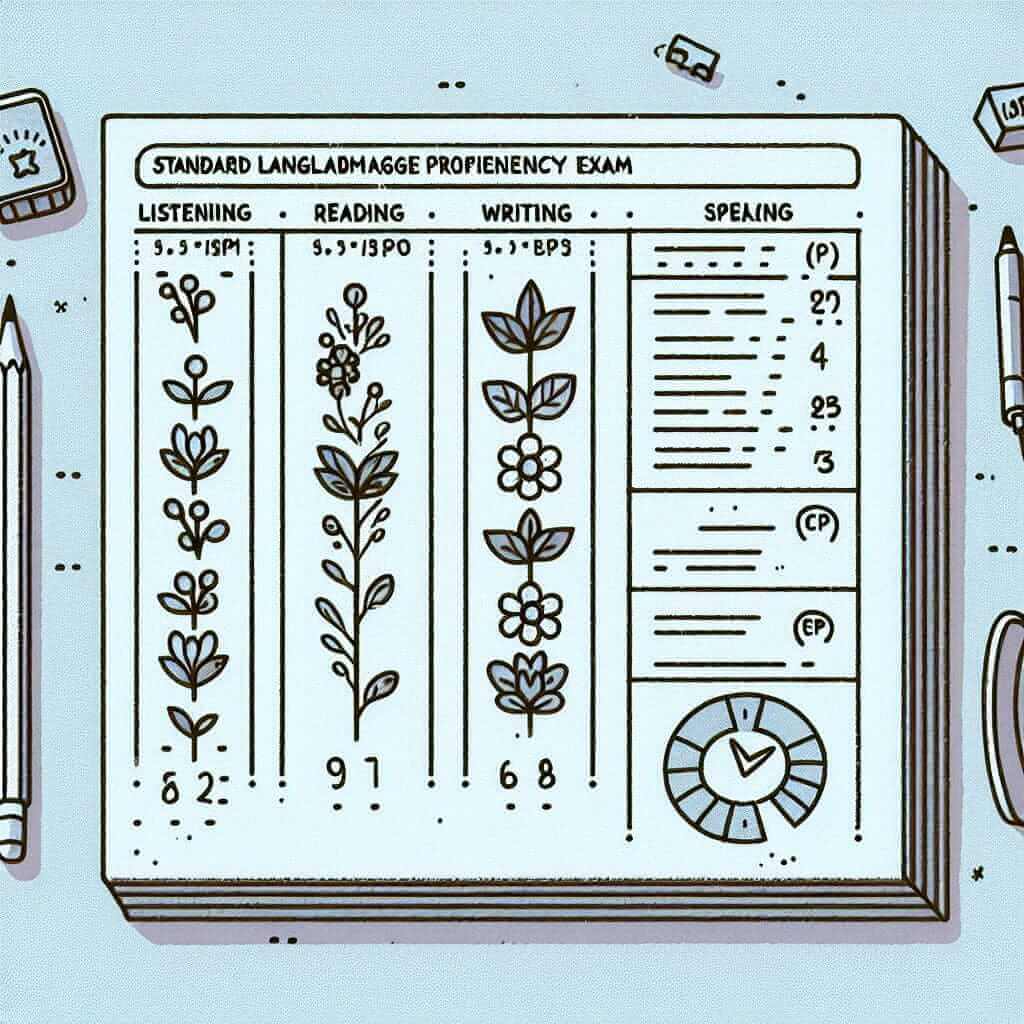Preparing for the IELTS exam can feel overwhelming, especially if you’re unsure where to begin. Whether you’re aiming for band 7, 8, or even 9, having a solid starting point is crucial for effective IELTS preparation. This guide will provide you with a clear roadmap to kickstart your journey toward achieving your desired IELTS score.
Understanding the IELTS Exam: Your First Step
Before diving into practice materials, it’s vital to understand what the IELTS exam entails. Familiarize yourself with the test format, question types, and the assessment criteria for each of the four sections: Listening, Reading, Writing, and Speaking.
Why is Understanding the Exam Structure Important?
Knowing what to expect on exam day reduces anxiety and allows you to strategize your preparation effectively. For example, understanding the IELTS Listening section’s multiple question formats – multiple-choice, sentence completion, or diagram labeling – enables you to practice specific listening skills required for each type.

Creating a Study Plan: Your Roadmap to Success
A well-structured study plan is your personalized guide to IELTS success. Here’s how to create one:
- Set Realistic Goals: Define your target band score and desired test date.
- Assess Your Current Level: Take a practice test to identify your strengths and weaknesses.
- Allocate Time Wisely: Dedicate specific time slots for IELTS study, ensuring you cover all four skills.
- Choose Appropriate Resources: Select high-quality practice materials, including official IELTS practice tests.
- Review and Adapt: Regularly assess your progress, adjust your study plan as needed, and address any areas where you’re facing challenges.
Example Study Plan:
Let’s say your target is to achieve a band 7 in IELTS. Your study plan could look like this:
Weekdays:
- 1 hour: Vocabulary building and grammar review
- 1 hour: Alternating between Listening and Reading practice
- 30 minutes: Writing task practice
Weekends:
- 1.5 hours: Speaking practice with a partner or tutor
- 1 hour: Full practice test review and analysis
Mastering the Four Skills: Essential Strategies
Listening:
- Practice Active Listening: Focus on understanding the meaning and context, not just individual words.
- Familiarize Yourself with Accents: Listen to a variety of English accents to improve your comprehension.
- Utilize Practice Tests: Official IELTS practice tests offer valuable experience with the exam format.
Reading:
- Develop Skimming and Scanning Skills: Practice quickly identifying key information in texts.
- Improve Vocabulary: Expand your vocabulary by reading widely on various topics.
- Understand Question Types: Learn the strategies for answering different reading question types.
Writing:
- Analyze Model Answers: Study high-scoring essays to understand the structure and language used.
- Practice Time Management: Allocate time effectively for planning, writing, and reviewing your essays.
- Get Feedback: Have your writing assessed by an experienced teacher for personalized feedback.
Speaking:
- Practice Regularly: Engage in conversations on a range of topics to improve fluency and pronunciation.
- Use a Variety of Vocabulary and Grammar: Showcase your language skills by using a wide range of vocabulary and grammatical structures.
- Record Yourself: Listen back to your speaking practice to identify areas for improvement.
Conclusion:
Embarking on your IELTS journey requires a structured approach and dedicated effort. By understanding the exam, creating a personalized study plan, and employing effective strategies for each skill, you can confidently work towards achieving your desired IELTS score. Remember, consistency and perseverance are key to unlocking your success in the IELTS exam.